Choosing a class is the most important step in starting a game in any part of Diablo. After the release of the Diablo 4 beta, we got a more or less complete picture of the types of fighters that will be available at launch. However, not all of them are equally well suited for novice gamers who have not gone through the previous parts. And vice versa - for experienced fans, some classes will seem too simple and boring. To help with the choice, we have prepared a detailed guide on all available classes, their abilities, pros, and cons. We will also analyze who it is worth starting the first passage as and why.
How many classes in total
The list of initial classes has long been the standard for Diablo. However, sometimes there are some changes. For example, the necromancer appeared in the third part only after the DLC, while now it is one of the starting characters. Five classes are available in the beta:
- Barbarian;
- Wizard;
- Rogue;
- Druid;
- Necromancer.
As before, you can choose the gender, as well as fine-tune the appearance of the hero. It is expected that at least two more additional classes will be added in future DLCs. However, what exactly is still unknown.
Barbarian
As you might guess, the barbarian is a ferocious melee fighter who deals purely physical damage. Forget about magic and long-range attacks. If you settled on this class, you will always be in the thick of the battle. True, if the battle drags on, the barbarian will have a hard time, and without support, he can be taken by numbers.
The main feature of the barbarian will be the Arsenal system, a unique class mechanic. After reaching the fifth level, you will be able to assign a separate weapon to each attack skill. Selected blades and clubs will also gain their own experience, becoming more and more effective. There are ten such ranks in total. In simple terms, the barbarian will be able to carry four types of weapons at the same time and pump them very quickly, receiving impressive additional bonuses.
An interesting feature of the ranks is that the weapon gains experience on each hit, and not on a kill. Also, the blades will not change in the PvP zone.
All barbarian skills are divided into 6 categories:
- Basic attacks - deal reduced damage and allow you to accumulate the main resource (rage), as well as impose control effects;
- Basic skills - spend rage and deal increased damage, as a rule, they are at the heart of the build, depend on weapons and class mechanics;
- Defense skills - control skills that will help slow down the enemy and partially restore health;
- Fighting skills - do not consume rage and require only a cooldown, add variability to your build, some impose positive effects on other players;
- Weapon skills - do not require rage, deal increased damage, most often used against groups of enemies;
- Ultimate - special abilities, individual for each character. Deals tremendous damage to one or a group of enemies, you can choose only one.
The barbarian also has a number of passive skills. By analogy with the ultimate, you can choose only one:
- Unlimited - Increases the maximum duration of Berserk by 5 seconds, as well as its damage bonus by 25%;
- Walking Arsenal - Dealing direct damage with a two-handed strike, two-handed slash, or dual weapon increases the amount of damage dealt by 10% for 6 seconds. While all three damage bonuses are active, you take additional damage increased by 15%;
- Unbridled Fury - Primary skills deal 135% more damage but cost 100% more.
- Bleeding Wounds - Killing a bleeding enemy creates an explosion that deals 12% bleeding damage over 5 seconds.
The barbarian has quite a few talents, but in general, they can all be divided into several types:
- Increasing and accelerating the accumulation of rage;
- Increased movement speed;
- Damage increase;
- Acceleration of health recovery;
- Strengthening control.
Summing up all the known information, we can highlight the following strengths and weaknesses of the character.
The Barbarian is certainly very strong and capable of inflicting massive damage but does not cope well with protracted battles and enemies that attack from a distance. All of his active skills depend on rage, which decreases outside of combat. Many buffs increase damage and movement speed, but control abilities and really serious skills have a very long cooldown. In close combat, it will be more difficult for you to dodge especially strong attacks from enemies and bosses, and therefore the barbarian is very dependent on the healing abilities of team members. Playing alone can sometimes be difficult. Finally, Arsenal will allow you to prepare for any unexpected situation, however, in the early game, the barbarian will be especially weak due to an acute lack of rage. The gameplay for him may seem too monotonous and boring.
Druid
An interesting character that many underestimate. In Diablo 4, the druid will become a werewolf with the forces of nature. He is able to fight equally well both in close combat and at a distance. The main feature is the ability to transform into a bear or a werewolf. Both states have obvious advantages and disadvantages - the bear is strong, but slow, while the wolf is weaker, but more mobile. To help him, the druid summons animals that distract opponents and make it possible to inflict maximum damage.
Interestingly, the skins are not tied to buttons, but to abilities. This means that when the desired skill is activated, the druid will automatically transform and deal damage in accordance with the selected form.
The druid deals not only physical damage but also from lightning and poisons. To use nature magic, the character needs spirit, which is accumulated during basic attacks.
Spirits will become a class feature. There are 4 of them: a deer, a wolf, an eagle, and a snake. Each of the animals gives certain gains, which become more as the spirit is “pumped”.
All druid skills are divided into 6 categories:
- Basic attacks - deal low damage and allow you to accumulate the main resource (spirit), as well as impose control and weakening effects;
- Basic skills - spend spirit and deal increased damage, as a rule, they are at the heart of the build, depend on weapons and class mechanics. It is through these skills that the druid changes form;
- Defense skills - control spells that will help slow down the enemy and partially restore health;
- Wrath skills - only require a cooldown, add variability to your build, and some impose positive effects on other players. If you manage to reduce the "rollback" time, they can become the main abilities;
- Companion skills - allow you to summon allied creatures, they will also impose positive effects on the character or weaken opponents. The number of summoned creatures can be increased by equipment;
- Ultimate - special abilities that open at the last levels of pumping, individual for each character. Deals tremendous damage to one or a group of enemies, you can choose only one.
Talents have two directions:
- Magic;
- Shape change.
The druid is capable of being an effective fighter at both short and long distances. Thanks to different appearances, the character easily endures severe damage, however, binding the form to skills does not allow you to stay in one appearance for a long time - you will have to quickly adapt not to the situation on the battlefield, but to the "kickbacks" of abilities.
Enchanter (wizard)
One of the most classic yet powerful characters in the entire Diablo series. The sorcerer is a master of elemental damage and a ranged specialist. His weapons are wands and staves. Equally good against single targets and groups of enemies. A feature of the wizard in Diablo 4 is that the ultimate abilities differ depending on the school of magic.
The class mechanic is called the Enchantment System and allows the wizard to replace two active abilities with passive ones.
All wizard skills are divided into 6 categories:
- Basic attacks - deal low damage and allow you to accumulate the main resource (mana), as well as impose control and weakening effects;
- Basic skills - spend mana and deal increased damage, as a rule, they are at the heart of the build, depend on weapons and class mechanics. All basic skills are focused on area damage;
- Defense skills - spells that will allow you not to take damage in ranged and especially in melee combat, also impose negative effects on opponents;
- Sorcery - they only require a cooldown, and they add variability to your build;
- Mastery skills - allow you to supplement the selected build with interesting abilities and effects to those already studied;
- Ultimate - special abilities that cause massive damage to one enemy or the whole group, you can choose only one.
Most of the skills have already met in the previous parts, but the ultimate skills are new. Despite their combat properties, it is unlikely that experienced players will focus on them. The long "cooldown" of such magic makes it practically useless in serious battles, where quick spells with a short cooldown are much more effective.
Talents will reduce the cost of mana for some skills, increase damage, speed up the recovery of mana from active and passive actions, extend the effects of control, and also increase its survivability.
By the fourth part, the wizard has not changed dramatically. Those who love to play for him will immediately feel at home. When using spells, you need to monitor the level of mana. Although it replenishes quickly enough, without a valuable resource, the sorcerer risks being helpless in the face of the enemy. You can easily win protracted battles, however, due to reduced protection, you are forced to constantly move. The advantages of the wizard include a number of defensive skills that not only reduce the damage received to zero but also impose negative effects on enemies.
Rogue
The rogue will become a complex character, incorporating all the best from the previous variations (Amazon and Demon Hunter). It is also one of the strongest heroes and is especially fun to play.
The Rogue Token is a combination of agility and various debuff effects. You can equip both ranged and melee weapons at the same time. Similar to the druid, you don't need to switch between equipment, just select the appropriate ability. Thus, you can almost instantly change distances and be unpredictable.
The rogue has three class mechanics that are unlocked through the story. The first one is combo points. They accumulate when using basic skills and can significantly enhance some basic abilities.
The second class mechanic is Inner Vision. Marks appear over enemies. By killing such opponents, you fill a special scale, after which you can use the main resource without a limit for 4 seconds.
The third mechanic is "Preparation". This ability reduces the cooldown of ultimate skills, turning the rogue into a real killing machine.
All rogue skills are divided into 6 categories:
- Basic attacks - deal low damage and allow you to accumulate combo points, as well as impose control and weakening effects;
- Basic skills - deal increased damage, as a rule, are at the heart of the build, depend on weapons and class mechanics, improve due to combo points, go well with the basic ones;
- Agility skills - will allow you to quickly move around the arena, dodge attacks and get out of the environment, also help you initiate a fight and quickly close the distance;
- Evasion skills - will allow you to outwit or stun the enemy and leave the battle unnoticed, help maintain health and give time for its recovery;
- Infuse and Impact Skills - Strengthen attacks by applying various effects to weapons, such as poison or freeze. Basic and primary abilities deal increased damage and apply the selected effects. Especially useful in co-op;
- Ultimate - special abilities, individual for each character. They deal tremendous damage to one or a group of enemies, you can choose only one.
Rogue should be the most versatile class, but mastering all of its features can be tricky. To make a dangerous fighter out of the hero, you will have to regularly fill the combo counter. High mobility will not only allow you to overtake enemies but will also become a vital skill. Modest defensive skills will not save you from a lot of direct damage - you will have to run away. The rogue is especially useful in a cooperative game when he is covered by a sorcerer or druid. Then you can easily sneak up on opponents from behind and deal damage without harm to health.
Necromancer
It's time to discuss the ultimate class. For several parts, the necromancer has been considered the most powerful character, and it looks like Diablo 4 will be no exception. The hero specializes in summoning and long-range attacks, and as "mana" he spends two resources at once - essence and corpses. Essence replenishes automatically over time, and basic attacks can speed up this process. There are always a lot of corpses, so there will be no shortage of them. The remains will be required to summon minions or enhance skills.
The main weapon will be a scythe, which can be supplemented with a shield. Unique class mechanic - Book of the Dead. Thanks to this artifact, you can choose who exactly to resurrect - the skeleton of a warrior or magician, as well as a golem. In turn, each of the categories has its own modifications. For example, skeleton warriors can become protectors, soldiers, or reapers.
The Necromancer is able to sacrifice some component of his bone army for personal gain, thus receiving good buffs.
Like other characters, skills are divided into several categories:
- Basic attacks - deal low damage and allow you to accumulate the main resource (essence), as well as impose control and weakening effects;
- Basic skills - deal increased damage, as a rule, are at the heart of the build, depend on weapons and class mechanics, improve due to combo points, go well with the basic ones;
- Horror and Curse Skills - apply weakening effects, enemies deal reduced damage and vice versa, receive increased damage, and also slow down. Negative effects can be directed to a specific target or to an area;
- Summon Skills are utility abilities that can help control enemies or weaken them. Spells are not related to the restoration of the army of the dead, a separate button is responsible for this;
- Ultimate - special abilities, individual for each class. They cause huge damage to one or a group of enemies, you can choose only one, and they take a very long time to recharge.
Talents will help increase the damage from darkness magic, the duration of control effects, restore health and apply positive effects to the summoned army, reduce the cost of the main resource, and much more.
It is already known that the hero can be "pumped" into one of four game styles: bones, blood, darkness, and army. Each of these involves its own set of talents and skills.
Obviously, the necromancer is vulnerable without minions, so if you like to deal with crowds of enemies with your own hands, this class is not suitable. Also, the maximum potential of the hero will be revealed only with a balanced build, you will have to study skills and correctly combine them.
For whom to start the game
The choice of class depends entirely on your experience. If you are a beginner and do not want to understand how to build a build, a sorcerer will do. He has the best damage-focused magic as well as great crowd-control skills. Even without fine-tuning, you will become a formidable force in both solo and co-op. Most of the wizard's skills have not changed in any way from the previous part, which is why longtime fans may not want to choose this class.
In the case when you want to shred enemies up close, choose a barbarian. This class is also suitable for beginners but has its own characteristics. Monotonous gameplay and unlocking potential only in the middle of pumping can be tiring. But you will feel great in a single passage.
Druid is the universal class. It is moderately complex and interesting. It tolerates damage well and knows how to fight in both ranged and melee combat. The class will appeal to beginners and connoisseurs of the series. The only thing that can scare away is the limited scope of some possibilities and the emphasis on the magic of nature.
The last two classes - necromancer and rogue - are the most difficult to master. Rogue is able to give a very diverse gameplay, but to master it you need to be a real professional. In addition, the rogue feels much more confident in the team.
With a necromancer, the situation is somewhat simpler and resembles a sorcerer. In any case, you will become a formidable force and will be able to shred enemies without any problems in single-player and cooperative modes, however, in order to reveal your power by 100%, you will have to get confused with the development of the build. The Necromancer is great for both beginners and experienced gamers, but in the hands of a master, it will become a real gem.

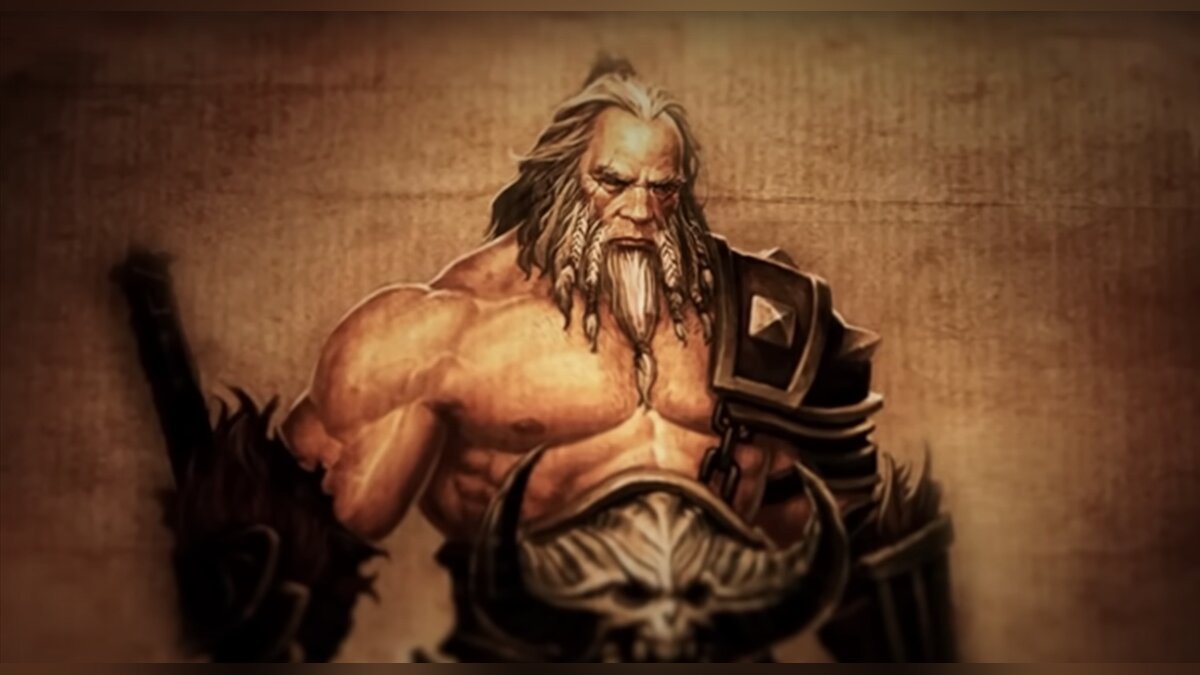

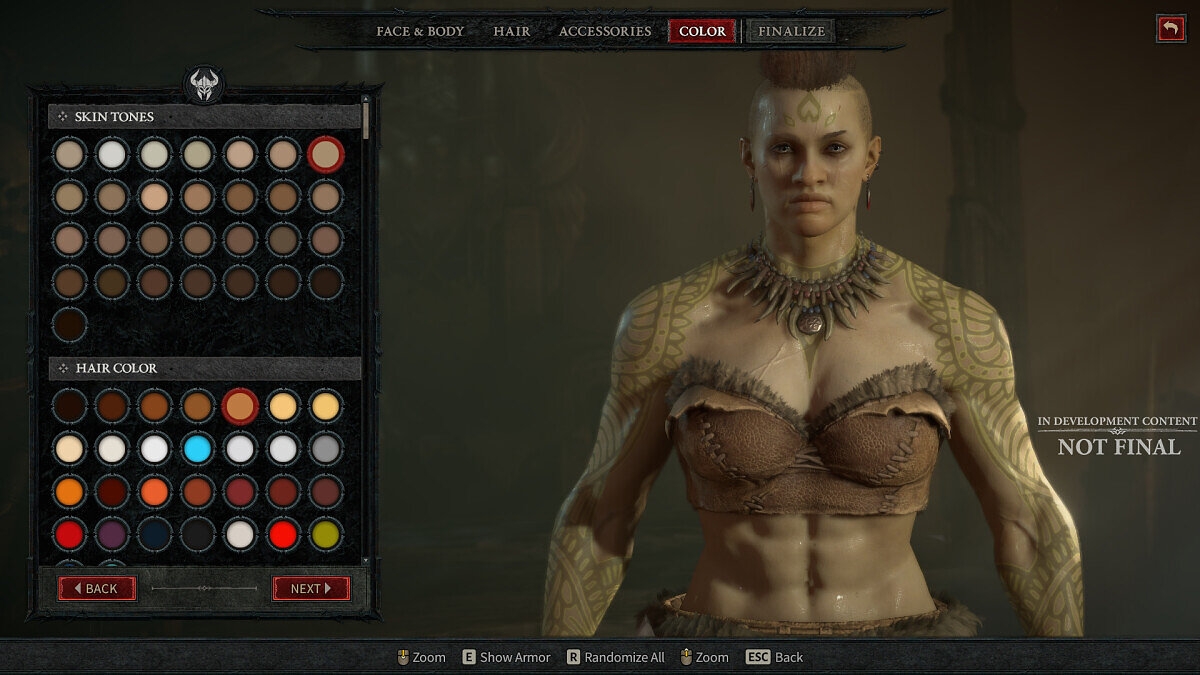

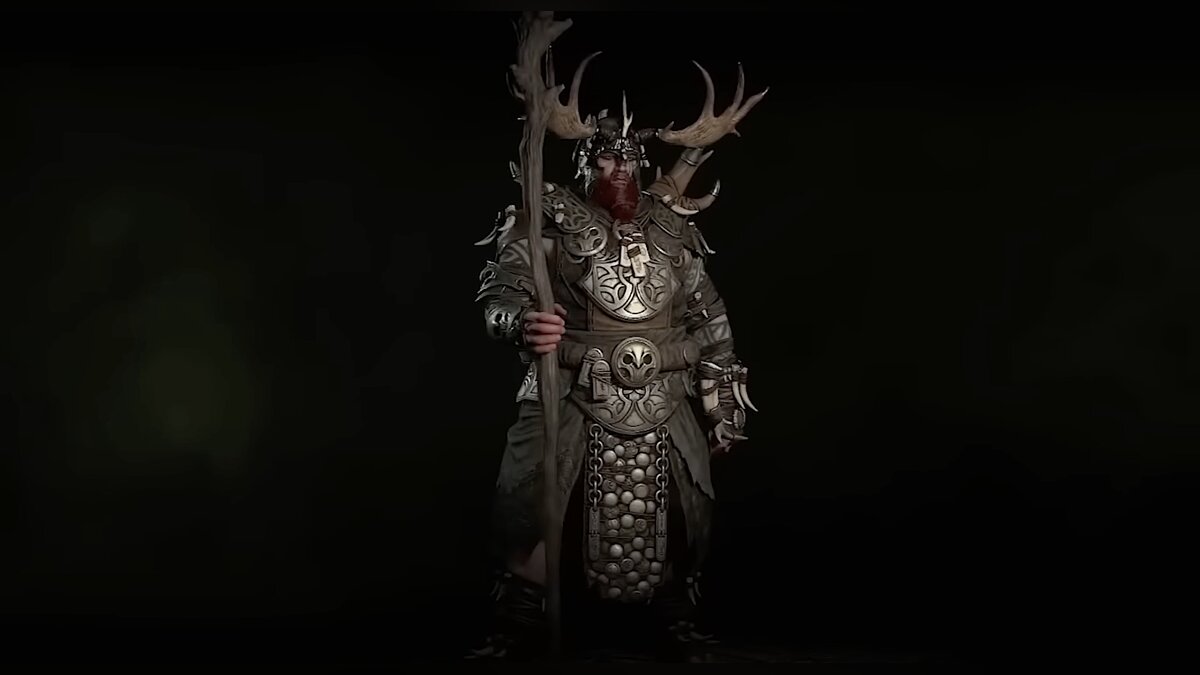

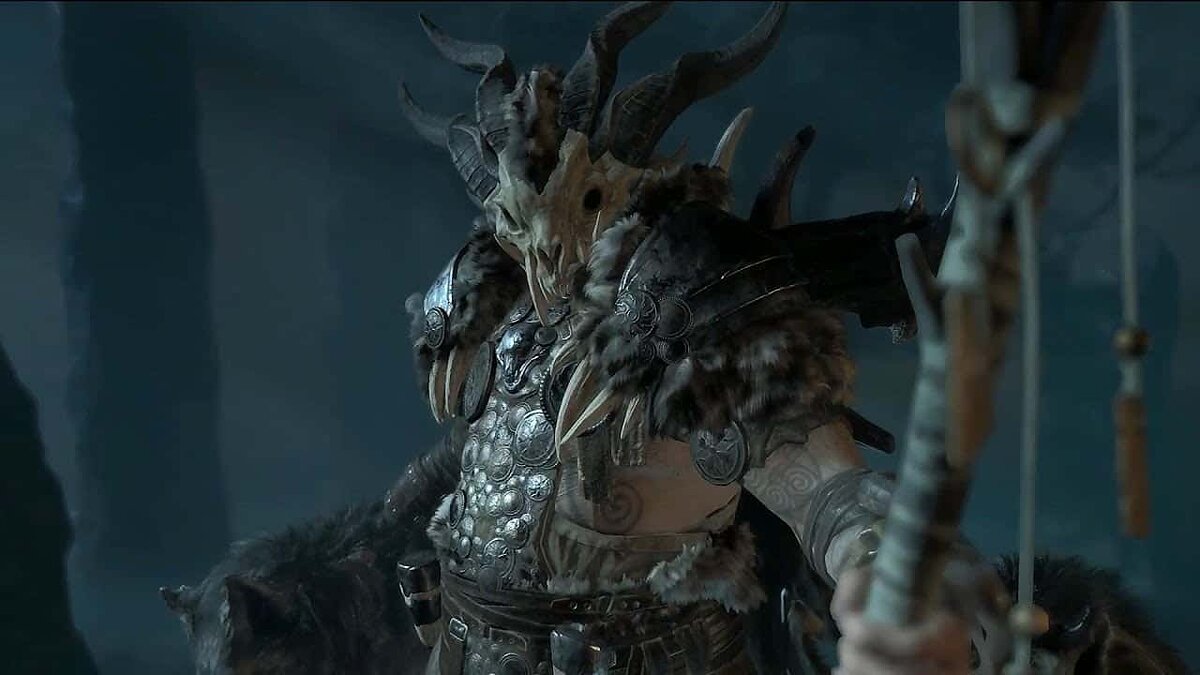

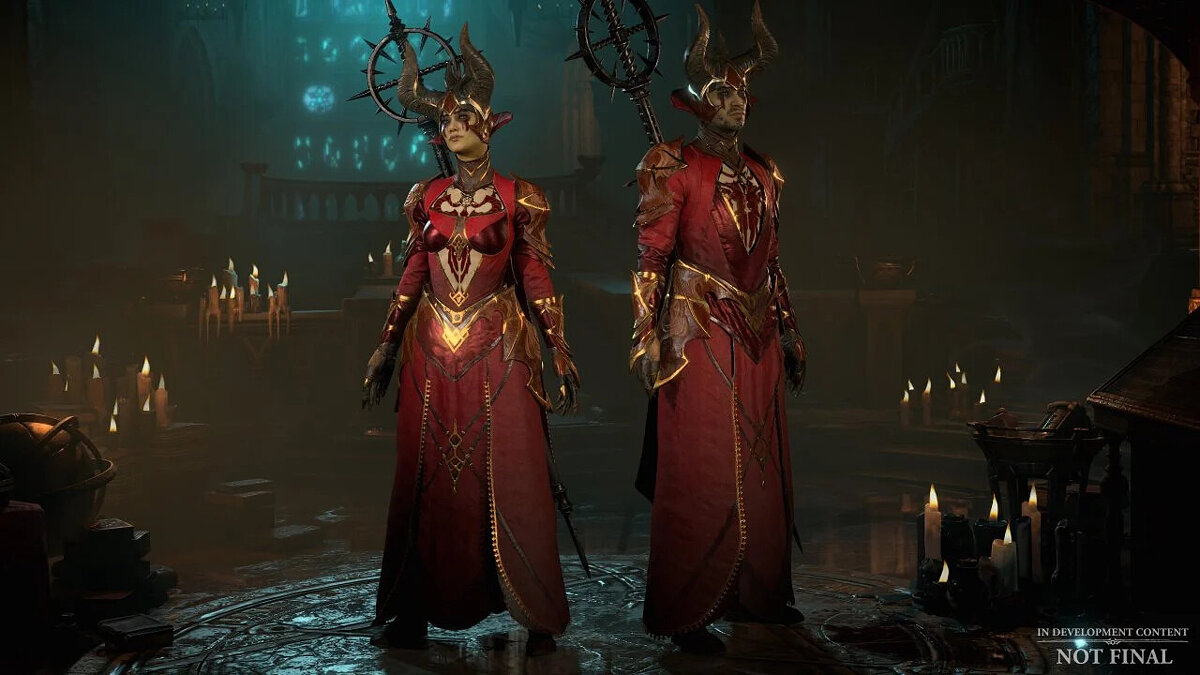
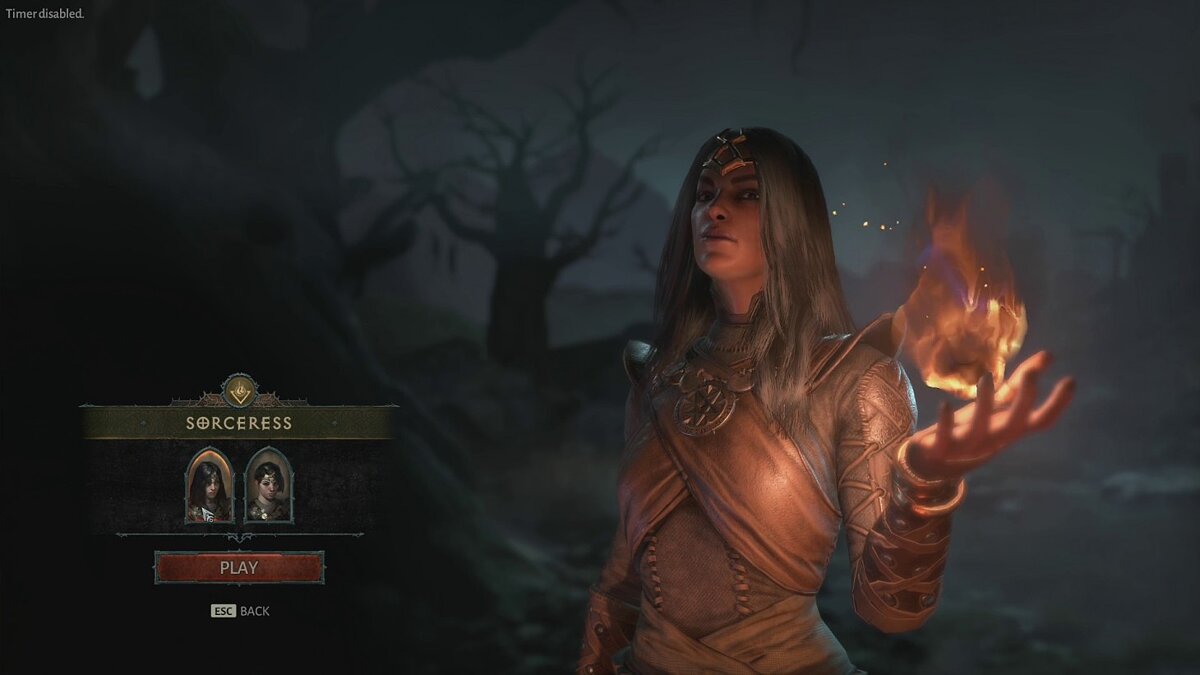

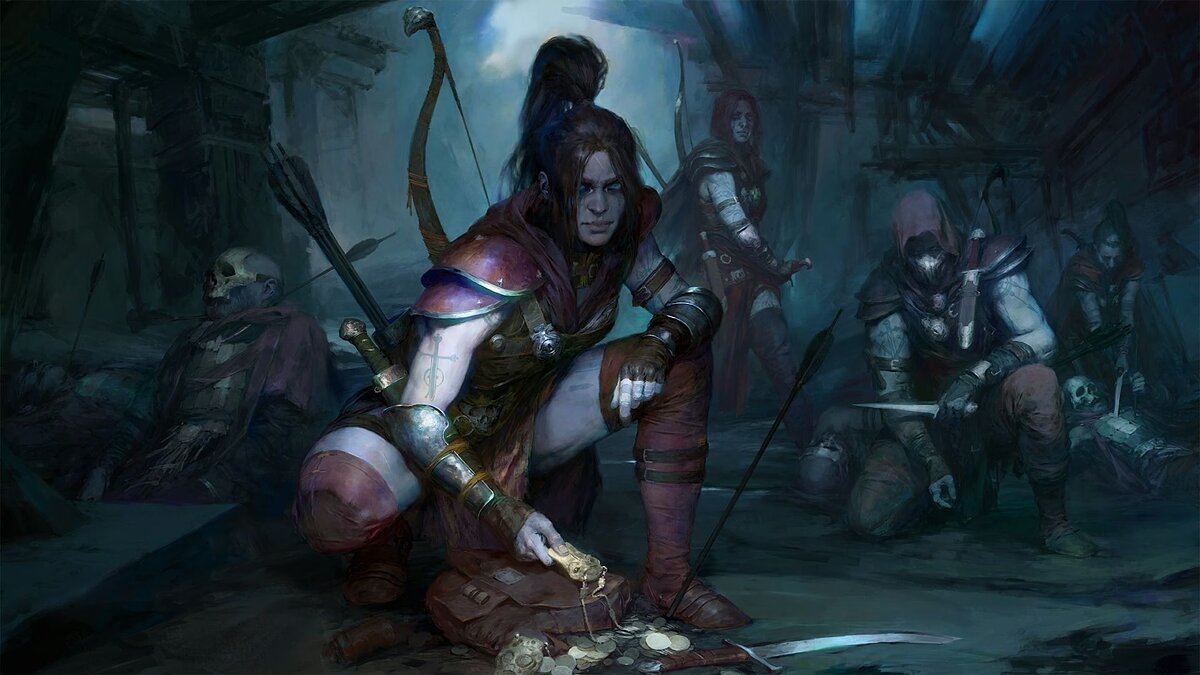

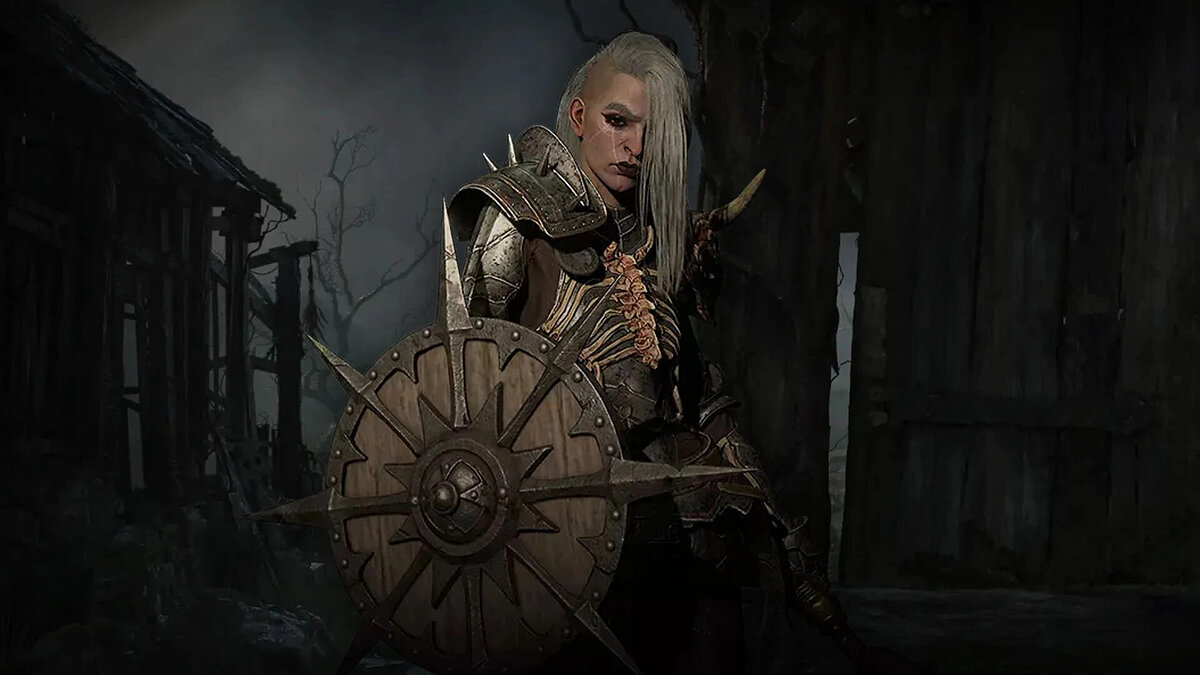
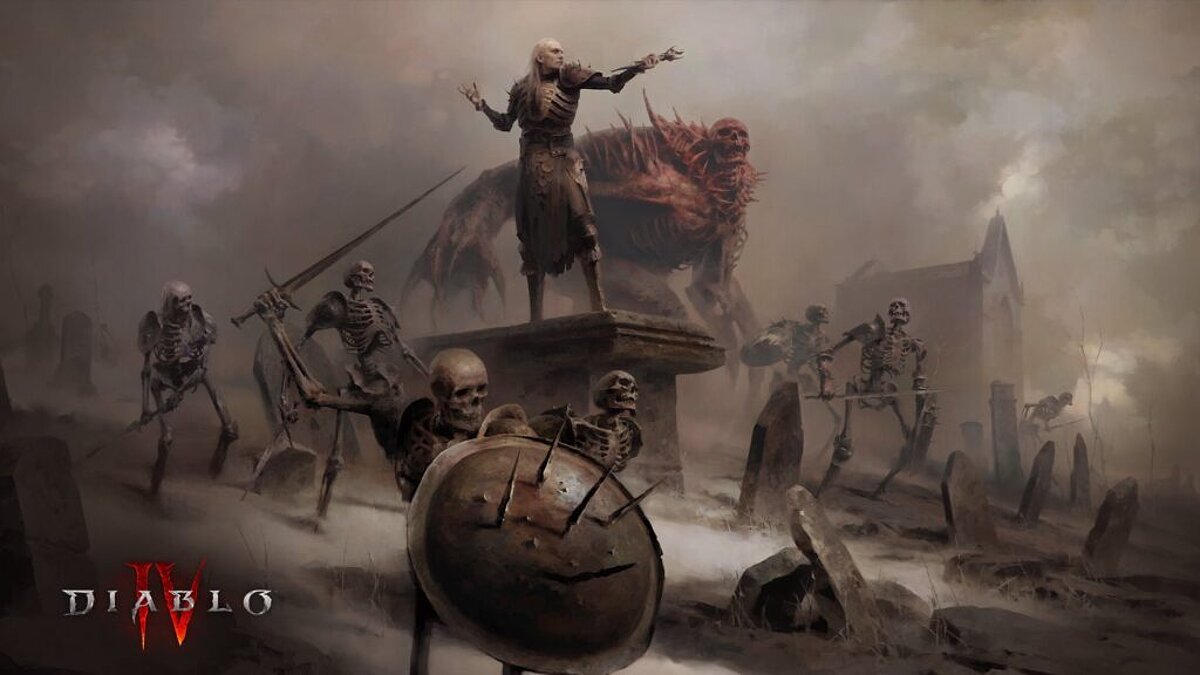


Comments
Post a Comment